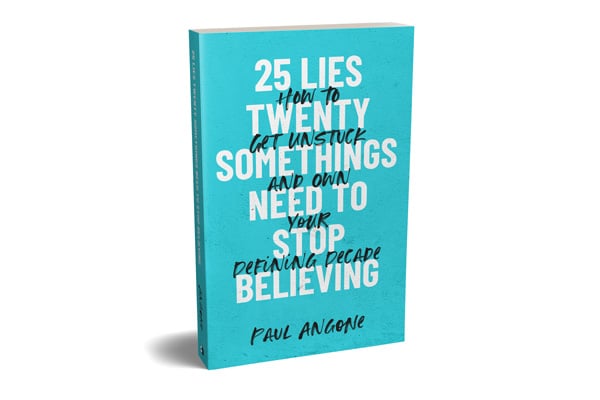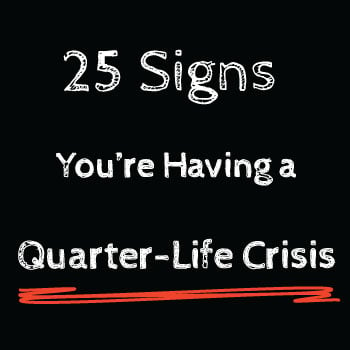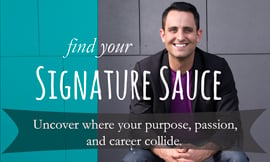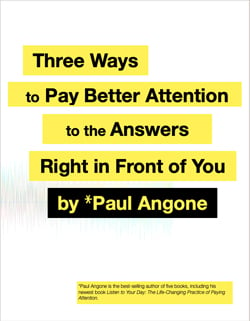Today All Groan Up welcomes an amazing guest post from one of my new favorite online friends, Kyle Ingham of The Distilled Man fame. Kyle is the real-wise-deal and if you didn’t see the fun interview I did with him, you can watch it here. Find out more about The Distilled Man at the end of this article. Take it away Kyle…
You might think the worst thing about aging is gray hair and wrinkles…and having to ride one of those Rascal scooters everywhere. (Who am I kidding, those scooters look fun…)
No, actually the worst thing about getting older is regret.
You know the saying “hindsight is 20/20”? It’s true. As you get older, you suddenly see everything that’s happened in the past with crystal clarity.
And if you’re not careful it becomes an overwhelming, negative force in your life.
Suddenly you look back and just see your mistakes, the blown opportunities. Things you said that you shouldn’t have…or things you didn’t say. Woulda…coulda…shoulda.
Regret is an Evil, Soul-Sucking Waste of Time and Energy
Occasionally being self-critical is good—when you reflect on how you could have done something differently—especially if you have another chance to do it right.
But beating yourself up after-the-fact is a waste of energy. You can quickly start seeing your missteps in terms of absolutes: “I didn’t just make the wrong decision, I am a failure…”
And then you lose sight of the positives—the things that you actually did well, the impact that you did make.
So, what can you do NOW to keep regret from taking a big poo on your life later?
First: Stop Sawing Sawdust
No matter where you are in life, starting now it’s time to break the habit of regret. The past is the past, and unless you can channel those critical thoughts into “doing it better” next time, you’ve got to move on. As Dale Carnegie said, “You can’t saw sawdust.”

Photo Credit: IamNotUnique via Compfight cc
Even if you made mistakes in the past, most of the time no one else even cares. You’ll always be your own worst critic.
Second: Don’t Fear Future Bad Decisions
You might think the only people who avoid regret are people who make the right moves all the time. People whose lives go perfectly according to planned.
Kind of a scary idea. Just the thought can paralyze you.
Sadly, this happens all the time—at work and in your personal life. You’re so worried about making the wrong decision that you delay deciding…or make no decision at all.
The problem is, not deciding becomes a decision in itself. (want to tweet that?)
When you’re so afraid to fail that you don’t act, you end up failing by default.
Playing it Safe is Far More Dangerous Than You Think
It’s easy to go through life thinking “playing it safe” is the way to go. Stick to common wisdom. Do what our parents and those around you tell you is right: go to college, get a job, move up the corporate ladder. Get a mortgage, travel insurance, and the special anti-rust coating on that new car…
But playing it safe is the most dangerous thing you can do.
In her article “The Top 5 Regrets of the Dying” (now a book) Bronnie Ware said that one of the most common regrets of people on their deathbed was “I wish I’d had the courage to live a life true to myself, not the life others expected of me.”
There’s nothing more devastating than realizing you never took a chance to be (or to find out) who you really are. To realize there were amazing experiences within your grasp—and all you had to do was reach out and grab them.
As Mark Twain said:
Twenty years from now you will be more disappointed by the things that you didn’t do than by the ones you did do. So throw off the bowlines. Sail away from the safe harbor. Catch the trade winds in your sails. Explore. Dream. Discover.”
While it’s trite, the expression “if it doesn’t kill you, it only makes you stronger” has some truth to it. With age, you realize that most of the things that scare you—the lumps and bumps…the little dramas—aren’t that bad afterall. What really hurts is the chances you didn’t take.
Embrace Failure as a Learning Tool
So how can you use all of this wisdom now, in your twenties?
The first thing to do is change your relationship with failure. Believe it or not, failure can be your friend, BIG TIME.
If you look at some of the greatest people in history, it almost seems like failure is a prerequisite—maybe even the “secret sauce”—of success:
Milton Hershey had 3 other failed candy companies before finally starting Hershey.
R.H. Macy started 7 failed businesses before hitting it big with his department store in New York City.
Up to a point, even Abe Lincoln’s life reads like a string of defeats: he lost eight elections, had 2 failed business, and suffered a nervous breakdown. All of that up until the point that he got elected president and, you know, managed to abolish slavery…
Looking back, it seems that each failure these men faced helped them finally figure out how to succeed.
After Thomas Edison made 1,000 “failed” experiments developing the modern incandescent light bulb, his assistant asked if it was difficult to make so many attempts without results. He replied, “Results! Why, man, I have gotten a lot of results! I have found several thousand things that won’t work.”
Rather than be defeated by their failures, they chose to harness failures to propel themselves forward.
Even here in Silicon Valley, I have heard that many venture capitalist firms prefer to invest in founders who’ve already had one company fail. Because yes, they’ve made mistakes…but they most certainly learned valuable lessons along the way.
How to “Fail Forward”
Right now the rest of your life is stretching out ahead of you—like an empty canvas waiting to be painted. Do I recommend that you purposefully sully the canvas? No, but to create the most compelling picture, you have to get comfortable courting failure…in a healthy way.
This involves two things:
First, it requires cultivating a resilient mindset and developing a better “explanatory style”, so you can talk to yourself in a constructive way. (No, I don’t mean talk to yourself so people think you’re off your meds. I mean so your inner voice stays positive no matter what).
Second, you should learn how to use “little bets” to fail forward. In Little Bets, Peter Sims cites example after example of highly successful people who’ve used small experiments to get information that ultimately makes their craft better.
The key is to engineer situations where you might fail but (A) you learn from that failure, and (B) you keep the stakes low enough that your “failure” never sets you back significantly.
Sims explains how comedian Chris Rock uses small clubs to test out material in a low-risk environment. He goes on stage with a legal pad scribbld with joke ideas, and more than half of them fall flat. But when the audience responds, he makes a note next to the joke, and ultimately that’s the material he uses in his big shows.
So, even if you’re not certain of how to proceed in life, you can always move ahead without fear if you have a positive mindset and you use “little bets” to help find the right path.
You’re going to make some mistakes in life. If you keep your head up and keep moving, not only will you survive your mistakes, but they’ll make you wiser and more interesting in the long run. On top of that, you’ll be able to break up with regret for good.
We’d love to hear from you within the comments on this article:
What’s one thing in your life you fear you’re going to regret if you don’t make a change?
Kyle Ingham is the founder of TheDistilledMan.com, where he writes about how everyday guys can become better men. Click here to get a free copy of his ebook, 48-Hour Gentleman: Your One-Weekend Plan to More Confidence, Poise and Manly Know-How.







I am at the point where I am reviewing my life and starting over. Things did not work out the way that I had planned and yes I have many regrets. I cannot change the past, however I am working really hard to make the most out of my present.
Sakhile, good for you! You’re right, you can’t change the past. It’s not the people who do everything right that truly succeed. It’s the people who can learn from their mistakes and pick themselves up and keep going. Cheers!
The fear of failure…I have learned that it takes one to fail to learn…just do it anyway